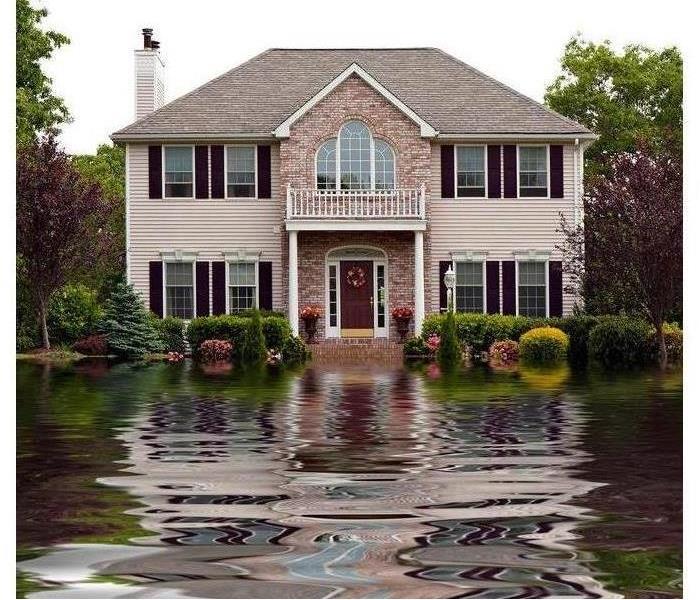Protecting Your Home from Mother Nature!
7/11/2021 (Permalink)
Protecting Your Home from Mother Nature's Wrath is Always Better Done Before the Storm!
Turns out a tidy yard and clean gutters do way more than just look nice.
Protect your home like the asset it is. Here’s how to disaster-proof your home against water damage and power outages. Take steps now to prepare—and reduce the risk of costly weather damage.
These things may not seem like much now, but when a storm ravishes your home, you'll be glad you completed the task ahead of time.
1. Clean Your Gutters to Prevent Home Damage
Clogged gutters mean storm water can overflow, saturating — and possibly penetrating — your home's foundation. Gutter build-up can also contribute to water seeping into your attic and damaging walls.
2. Protect Your Roof by Trimming Trees
Huge tree limbs dangling over your house, are a risk for major roof damage. Cut back limbs to reduce their weight. Also, make sure they're at least four feet above the roof. Tree limbs close to your roof allow for critters to find their way into your attic!
3. Install a French Drain to Keep Storm Water Away
A French drain — is a lightly sloped trench (1 inch per 8 feet) filled with round gravel and a pipe that diverts water away from your house. The drain can be shallow or deep depending on whether you've got a soggy lawn or a bigger problem with water entering your basement during heavy storms.
4. Invest in a Generator
An hour or two in the dark is an inconvenience, but a power outage of a day or two — especially when it's 100 degrees outside — can be hazardous to your health (and pricey, as all your refrigerated and frozen foods spoil). Invest in a generator (portable or standby, depending on how much you want to spend and how much power you need). Do your research!
5. Prevent Fires with Hardscaping and a Tidy Yard
A well-maintained lawn and a flagstone patio aren't just great curb appeal - it's also a fire deterrent because stone doesn't burn! You can also deprive flames of fuel by keeping the grass short and irrigated, removing dry leaves and dead plants, and pruning dead branches.
6. Install Impact-Proof Doors and Windows
Think a door is just a door? When it's rattling on its hinges mid-storm, you'll change your mind. Impact-resistant windows, doors and garage doors can inhibit high winds that cause structural damage to your property.
7. Update Your Insurance
Sometimes you really do need to read the fine print. Once a year, review your homeowners insurance to make sure you can rebuild your whole house in case of a disaster. See if your insurance adequately covers things like flood damage.
8. Check Fire Extinguishers
It is scary, but thousands of people die in home fires every year. Purchase fire extinguishers and check the seal to ensure it has weakened over time, causing the pressure to drop and rendering it useless. Check that the locking pin is intact and the pressure gauge or indicator is pointing to "full." (Sometimes this is a green bar.). Keep a fire extinguisher on each floor. Do your research. Different rooms require a different type of extinguisher.
9. Purchase Fire-Wise Plants
Consider how your plant choices help or hinder a fire. Plants with stems that contain wax, terpenes, or oils are super flammable — as are junipers, hollies, eucalyptus, and pines.
Choose fire-resistant foundation plantings like azalea, boxwood, hydrangeas, and burning bushes. (Ironic, right?)
Succulents, like sedum, have high water content and are less flammable. If you use bark mulch, which is highly flammable, keep it moist. Less flammable mulches are gravel, decorative rock, or bark-and-rock combinations. You can find a whole bunch of plants appropriate for your area at nfpa.org.
SERVPRO of Cape May & Cumberland Counties serves Cape May, Ocean City, Wildwood and surrounding communities in Cape May County. We also serve Bridgeton, Millville, Vineland and surrounding communities in Cumberland County. We're Here to Help 24/7/365! Call 609-624-0202.




 24/7 Emergency Service
24/7 Emergency Service
